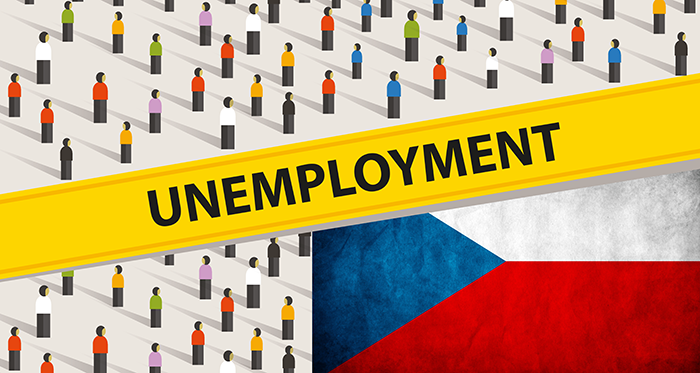Analysts: Seasonal factors and weak economy drive rise in Czech unemployment
The increase in Czech unemployment to 4.1% in December from 3.9% in November was primarily driven by seasonal factors, according to analysts consulted by the Czech News Agency. However, they also pointed to a year-on-year rise of 0.4 percentage points in the unemployment rate, which reflects the country’s sluggish economic growth. Experts predict unemployment will remain above 4% in the coming months but stress that it will stay low compared to other European countries and will not pose a significant challenge to the Czech economy.
The December rise in unemployment is consistent with regular seasonal fluctuations, noted ČSOB analyst Dominik Rusinko. “The arrival of winter marks the end of seasonal jobs in sectors like construction and agriculture, while tradespeople who temporarily suspend their activities during the colder months also register with the Labour Office,” Rusinko explained.
Randstad ČR CEO Martin Jánský highlighted additional seasonal factors contributing to the rise. “In December, companies traditionally reduce recruitment efforts, postponing hiring until January due to the holiday period. We may also see a slight uptick in unemployment in the first quarter as part-time positions and fixed-term contracts tied to the end of the year come to an end,” Jánský said.
Beyond seasonal influences, analysts emphasized the gradual upward trend in unemployment. “The December unemployment rate of 4.1% is the highest since April 2021, indicating weak economic growth over the past two years,” said Radomír Jáč, chief economist at Generali Investments CEE. He noted that businesses in some sectors are focusing on cost control, which has likely contributed to the rise in unemployment.
Pavel Sobíšek, chief economist at UniCredit Bank, added that the 2024 annual average unemployment rate of 3.8% was the highest in seven years, with 1.24 job seekers per vacancy, a level not seen since 2017. He anticipates unemployment will continue to rise in the months ahead.
Despite the uptick in unemployment, the Czech Republic still boasts one of the lowest unemployment rates in the European Union. Andrea Linhart Palánová, an expert in human resources management, downplayed the broader economic implications. “For the Czech labor market, this development does not present a significant obstacle to faster economic growth. Skilled and qualified workers remain in high demand, and employers view them as their most valuable asset,” she said.
Palánová added that individuals willing to pursue retraining or professional development should face little difficulty in securing new employment opportunities. “The demand for quality workers will remain robust, ensuring that the current labor market trends do not pose a long-term challenge for job seekers,” she concluded.
Source: CTK









